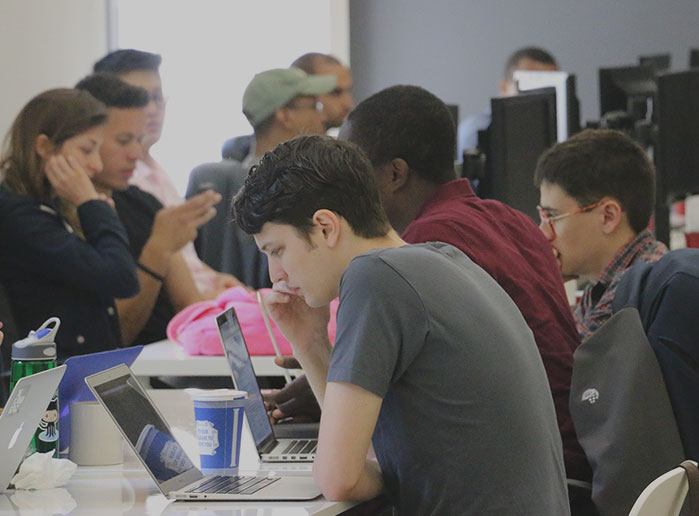As the manager of Muse Coach Connect, a platform that connects professionals with career coaches, I speak with people every day who are contemplating a career change. It’s a daunting process to be sure, one that can be both exciting and terrifying.
How do you know if a career change is right for you?
While you’re the only one who can truly answer this question, it might help to know some of the most common reasons why people choose to switch careers. And if any of these reasons sound familiar, a career change might be in order.
- There’s no (desirable) career trajectory at your current job; you want to head down a path that has more growth opportunities.
- The industry you’re in is changing and you don’t like the direction it’s headed; you fear for future job security.
- You want to make more money than you can make in your current industry.
- You want to hold a job or work in an industry that you’re passionate about or that impacts the world in a bigger and better way than your current job.
- You feel depressed or stuck in a rut at your current job and are just, frankly, ready for a change of scenery.
- There’s a career out there that sounds so perfect but you feel like you “missed the boat”; you feel like you’ll always regret the fact that you didn’t go down that other career path.
How do you know if a career in tech is right for you?
Since you’re reading this on Flatiron School’s blog, chances are high that you’re considering a career in technology. So, how do you know if moving into this industry is the right path for you? I’m happy to say that figuring that out can be broken into a simple, two-step process. First, you have to know yourself. Second, you have to know the industry you are considering switching into. Both steps require a little research, brainstorming, and conversations with third parties.
Know yourself
In order to know yourself, I suggest utilizing some good old fashioned lists. Make a list of what you liked about past jobs (what energized you and made a day enjoyable) and what you hated about past jobs (what drained you and made it hard to go into work). Make another list of what you are good at and what you really aren’t the best at. And finally, make a list of all the elements you hope to find in your “dream job”—maybe this includes more work-life balance, better utilization of your creativity, or the opportunity to make a six-figure salary. Dream big!
After you create your lists, consider taking some personality tests to bring science into the decision-making progress. I love the Strengths Finder test and the Myers Brigg personality test. Read over your results and see where they lead you. What jobs do other people who have your personality thrive in? Where will your strengths enable you to be the very best at your job? What do you require to make yourself feel fulfilled at work? These tests are legit and have given me and many of my friends and colleagues massive direction in our lives.
Know the industry
So, now that you know yourself, it’s time to get to know the industry you’re thinking of working in. Do your research here! Make a list of all the job opportunities/roles that exist in the technology industry, for example. Put a star next to the roles that really interest you. Do your research and find out what personality types thrive in those roles (Google it!). Network with people who currently work in those jobs and ask them good questions. For example, what does a day in their work life look like? Are they sitting at a computer all day? Do they have lots of meetings? Do they work long hours? What are their co-workers like? Make sure you talk to more than one person as well! Through your research (both online and in person) you’ll start to get an idea of what it would be like to work in the industry that you’re considering.

Is a career change worth it?
When I talk to people about making career changes I always like to note that I understand the process they are going through—and not just because I’ve talked to a lot of career-changers, but because I’ve been through multiple career changes myself. I know what it feels like to be worried about the financial implications of a career change, to wonder if it’s too late for me to switch careers, to overthink what other people will think or say about my decisions. I’ve felt the anxiety; I’ve experienced the emotion; I’ve been drawn in by the excitement. And ultimately, I’ve also reaped the rewards of making a career change. I love my job; I feel like my work matters; I’m growing as a professional; I see an exciting career path stretched out before me.
Trust me: making a career change can be hard, but for many, it’s worth it!
This article was written by Jody Porowski. Jody works at The Muse, where she manages Coach Connect, an online marketplace where professionals can hire career coaches to help them take the next step in their career. On a day-to-day basis Jody runs Coach Connect’s product vision and execution, establishes corporate partnerships, vets and hires talented career coaches, and works with customers to make sure they’re getting the personalized career advice that they deserve!
Feeling curious about a career in tech but you don’t know how to program? The best way to get started is to head over to Learn.co for our free Intro to Programming track.
Written byFLATIRON SCHOOL
Make yourself useful.

